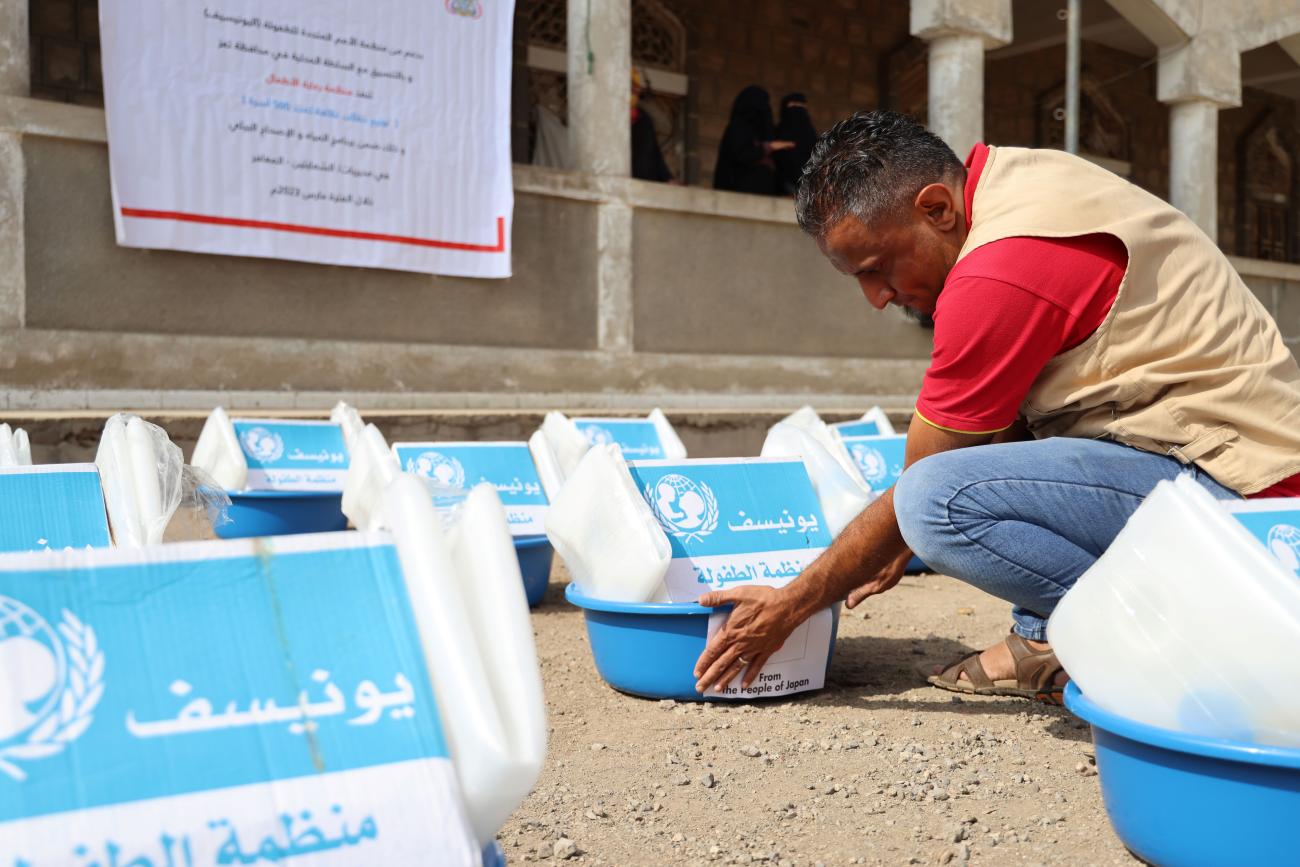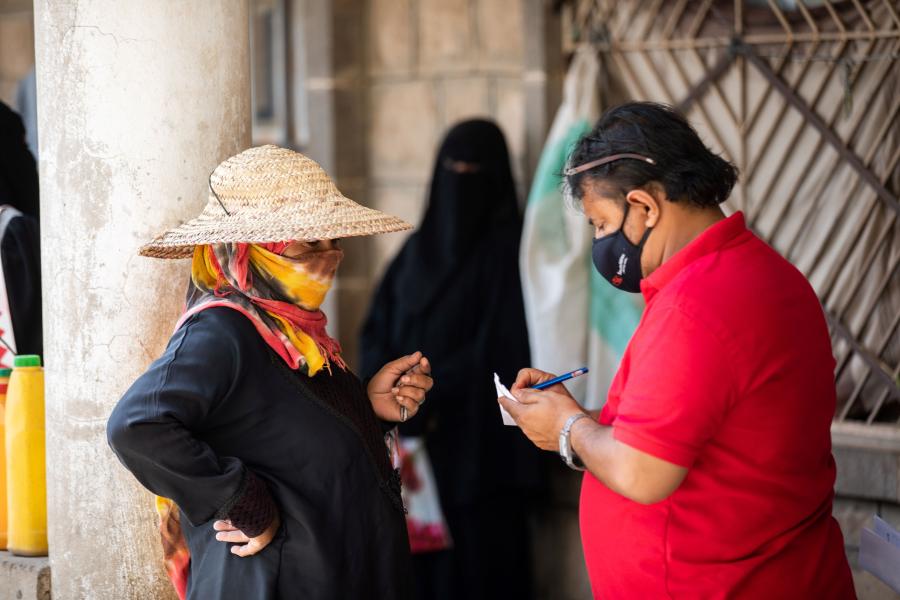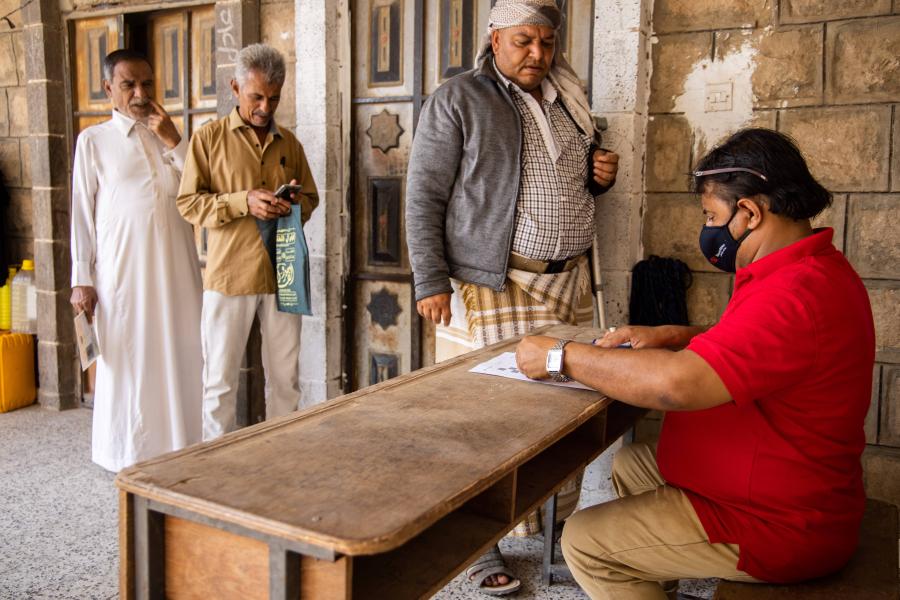Deliver Essential Hygiene Kits to Internally Displaced People in Yemen

Nearly 15.3 million people in Yemen requiring access to clean water & sanitation system
Yemen has been facing one of the world's most complex humanitarian crises for the past eight years. The country is experiencing devastating conflict and economic crisis, which have left millions of people in need of humanitarian aid.
With nearly 15.3 million people in Yemen requiring access to clean water & sanitation system, the situation is particularly dire for displaced people, who often lack access to clean water and basic hygiene facilities. In addition, the ongoing conflict and natural disasters have led to widespread water and sanitation infrastructure damage, exacerbating the problem. Lack of access to safe water and sanitation has led to the spread of diseases such as cholera and acute watery diarrhea, affecting hundreds of thousands of people.
First-Line Response Packages
To alleviate the suffering of people, UNICEF has been working with the support of the Government of Japan to provide essential support to displaced people across Yemen.
One of the key initiatives implemented by UNICEF is the Rapid Response Mechanism (RRM) kits, which include essential supplies such as basic hygiene kits, and female dignity kits. The RRM kits are designed to address the immediate and critical needs of displaced families who have been forced to flee their homes due to conflict or natural disasters.
Several waves of displacement occurred in Taizz governorate in 2022, with IDP camps being affected by both active conflict and flooding. First-line RRM response reached over 3,300 households (23,100 people) in Taizz alone, while RRM partners registered and supported over 400,000 newly displaced people throughout 21 governorates.
The hygiene kits distributed by UNICEF include essential items such as detergent soap, soap bars, towels, nail clippers, and baby basins.

Raydan Abdullah, an RRM Officer, highlights the challenges of providing aid in the current context. "One of the biggest challenges is the huge demand here in Taizz due to increased numbers of displaced people from the conflict." says Raydan.

Similarly, Saddam Ahmed, who is an RRM Officer, emphasizes the logistical difficulties in transferring aid from one region to another due to the conflict and how they conduct the awareness sessions.
“Due to the governorate's stretched area and the long distances between regions, it is challenging to distribute the kits on time." Regarding awareness activities, we work with volunteers from the targeted areas and conduct door-to-door awareness campaigns."
Impact on Displaced Yemenis
The support provided by the government of Japan and UNICEF has significantly assisted displaced people in Yemen.
"The hygiene kit contained items that helped me and my family maintain our basic hygiene routine," Mahfoud Hazza'a, a displaced teacher from Al Hudaydah, said of receiving the hygiene kit.
For Mervat Abdo, a displaced woman from Sana'a, the kit is crucial for maintaining hygiene in their current situation. “The conflict has negatively affected us in every way, mentally, physically, socially, and financially," she says. "We need all the help we can get to overcome this difficult situation."

The awareness sessions have been instrumental in ensuring that families understand how to use the hygiene kits effectively. These sessions provide education on the importance of handwashing, personal hygiene, and safe water storage and usage.

Continuous Support
The Government of Japan has been a long-term partner of UNICEF in Yemen, supporting various programs to help children and families affected by the ongoing conflict. This support has helped UNICEF provide vital assistance to the most vulnerable children and families, including those displaced from their homes.




